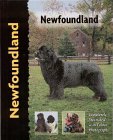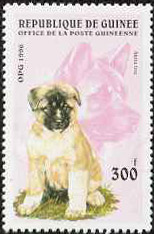
Newfoundland (Pet Love)
Newfoundland dogs have many staunch fans, for they are a very tolerant, cuddly breed, and larger than life. One of their roles as working dogs is to rescue people from water, and they are also good retrievers. They have been credited with saving many lives, and are designed to be excellent swimmers.
They are generally very friendly, tolerant dogs, and good with children. The working background of Newfoundlands makes them more suitable as family pets than the guarding breeds, because Newfoundlands are more likely to behave well with your children's friends when they call round. They are generally very patient dogs with small children, but can still knock children over, since they are such big dogs, so supervision is important.
These dogs tend to develop very strong bonds with their owners, and can be very sensitive to their owner's displeasure, so they do need to be trained with patience, since they can switch off with rough treatment or shouting. Newfoundlands have been bred to work independently, as rescue dogs, and this independence in such an affectionate and responsive dog can surprise owners. Training should start from when they are pups. Youngsters shouldn't be encouraged to play roughly with people, or jump up, because they grow to be so big. Ongoing informal training helps teach them house rules.
Socialization with people is important, as with any dog, though Newfoundlands tend to be easier to socialize than many breeds. They are usually courageous and protective of their human families without making threatening growls, placing themselves between their humans and any perceived threat. Visitors who are introduced to them tend to receive a friendly welcome, sometimes complete with drool.
Generally, they are good with other dogs, though socialization is important, and some males can take a dislike to other male dogs. Like all large breed dogs Newfoundlands take up a lot of space. They can also drool, and they can shed a lot, especially in spring. They don't need a great deal of exercise, but should have at least one daily walk. They love to swim, and were bred to be good swimmers.
Care should be taken with their diet and exercise while they are pups, so their bones develop properly, and they should not be allowed to put on weight as adults, which can lead to joint problems.
Other common health problems include hip dysplasia and inherited heart disease. Newfoundlands need protection from the sun in summer, and should only be taken out in the early morning and after dusk when it's very hot, because they can suffer from the heat with their thick coats. They need frequent grooming during their twice-yearly shed. More is shed in spring than in autumn.
Angela Barlowe has written a good introductory guide to Newfies, which is well illustrated and clearly explained. It is a good introduction for novices, though doesn't really go deeply enough into the breed to interest experienced owners.



